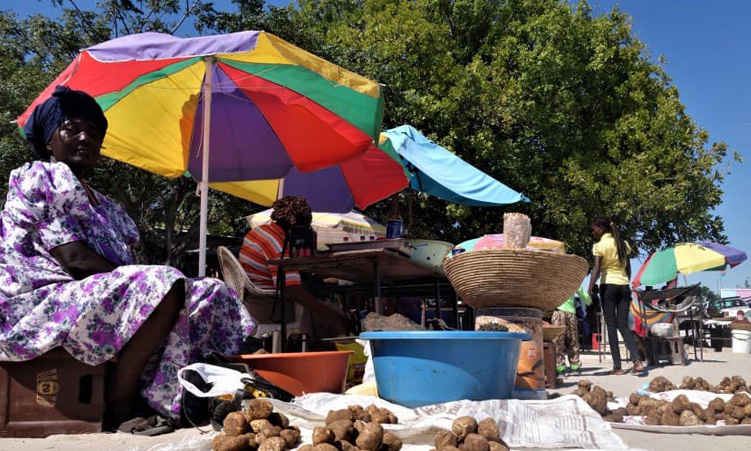NAMIBIA has disappeared off the face of the earth – as far as the Chinese government is concerned, at least.
People in China keen to read about the fate of fellow countryman Yang Fan following his appearance in a Namibian court in the Nuctech corruption case, were left none the wiser as all Chinese search engines are blocking a list of keywords pertaining to the probe, including Namibia.
Type in ‘Namibia’, and Chinese search engines spit out no results.The same goes for ‘Namibia bribery investigation’, ‘Yang Fan bribery investigation’, ‘Nuctech bribery investigation’ and ‘southern Africa bribery investigation’. Also for ‘Hu Haifeng’, Chinese President Hu Jintao’s son, who as former Nuctech chief is linked to the case. The Anti-Corruption Commission (ACC) in Namibia is interested to question Hu junior, although he is not a suspect in the case.Searching for any of the above keywords on a Chinese search engine produces an error message, which translated freely, means: ‘The search results may contain content not in line with relevant laws, regulations and policies,’ Times Online reported.According to the newspaper, The China Digital Times – a US-based blog run by Xiao Qiang – of the Berkeley China Internet Project at the University of California, posted a copy of a notice it said had been issued by the Communist Party’s propaganda department shortly after Yang, and co-accused Teckla Lameck and Kongo Mokaxwa appeared in court the first time. The notice, issued to all search engines, read: ‘Hu Haifeng, Namibia, Namibia bribery investigation, Nuctech bribery investigation, southern Africa bribery investigation. Please show no search results for all the above keywords.’The Chinese government censorship is the latest in a series which includes micro-blogging sites like Fanfou, Digu and Jiwai, the Edmonton Journal of the University of Canada states. Also blacklisted is Facebook, while Zuosa, YouTube and Twitter are all intermittent.’Nobody is exactly sure what the crackdown is about or when it will end,’ the Journal says. Sensitive anniversaries like Tiananmen Square and the outlawing of Falun Gong, as well as the upcoming 60th anniversary of the republic may all have played a role, it believes.According to Times Online, however: ‘China is always nervous about publicity surrounding the business activities of family members of its leaders, since the average citizen has long suspected that they enjoy huge privileges and unfair advantages.’The search ban on Namibia has sparked widespread criticism worldwide.’No more Namibia: China blocks search results for entire country,’ the OpenNet Initiative reported on its website.’According to the Chinese government, Namibia – a southern African country with a population of two million – does not exist,’ said the group – a partnership of the Citizen Lab at the Munk Centre for International Studies, University of Toronto; Berkman Center for Internet and Society at Harvard University; the Advanced Network Research Group at the Cambridge Security Programme, University of Cambridge; and the Oxford Internet Institute, Oxford University.’Namibia, what Namibia?’ The Dark Visitor, a website on Chinese hackers, reacted.Radio Netherlands Worldwide reported that ‘China’s authorities appear to be blocking news’ about the probe, with ‘state media making no mention of the case’.The on-line edition of Financial Times for China refers to a ‘sweeping campaign to purge any mention of a corruption investigation in Namibia from the Internet because it involves a company formerly run by the son of China’s president’.Meanwhile, one of many posts on Twitter reads: ‘China gets overzealous and blocks all searches with ‘Namibia’ in it. If only that darn bribery scandal hadn’t got out.’jo-mare@namibian.com.na
Stay informed with The Namibian – your source for credible journalism. Get in-depth reporting and opinions for
only N$85 a month. Invest in journalism, invest in democracy –
Subscribe Now!






